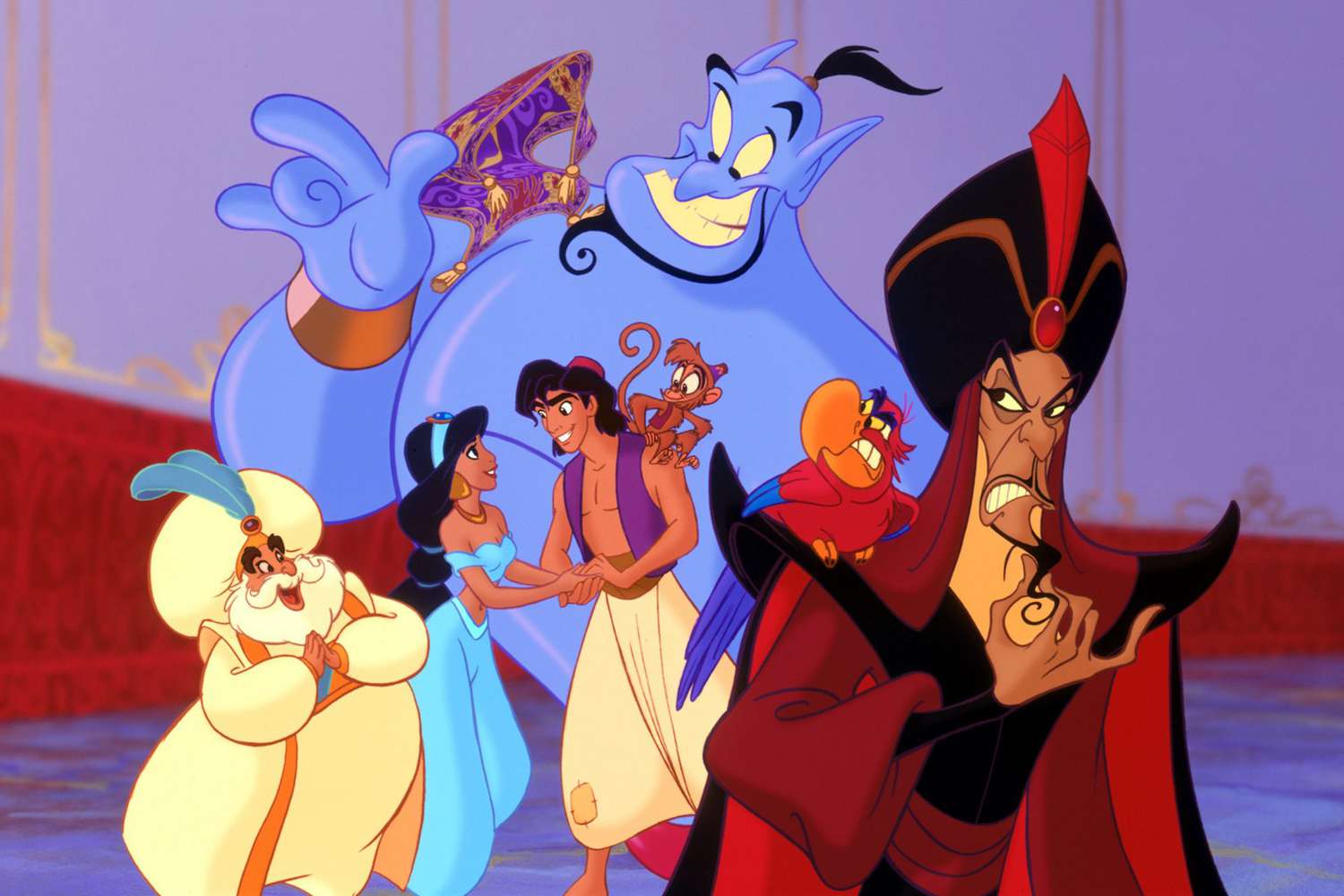Last Night Comic Con@Home took attendees on a deep dive into the world of Mystery Science Theater 3000. The long running show has taken on many incarnations over the decades and the panel included show creator Joel Hodgson as well as former cast members J. Elvis Weinstein and Bill Corbett.
The vibe was distinctly different for this comic con as everyone met at home through video conferencing. The effect is a panel that feels distinctly intimate though occasionally lacks the electricity of the standard convention. But no level of a pandemic can take away the pleasure of watching three great comedians get together and talk about the history of one of the most innovative shows ever created.
Their combined history spans the entire length of the show giving some fascinating insights into the evolution of the characters. Tom Servo, for instance, started out as Beeper an R2D2-style character that only really shows up in the first few episodes of KTMA. The character then took on a Pee-Wee Herman persona but after that didn’t gel he eventually turned into a kind of radio show host voice. Though they may seem like minor tweaks those choices went on to influence to the trajectory of the character for more than two decades.
Joel, on the other hand, notes that he wasn’t sure how to originally approach the role of host on the show. For avid viewers of MST3K the host role evolved the most through the decades. With three (four if you count the COVID Riffathon that went on Youtube) hosts and counting each one has approached it in a new way. Hodgson laid the groundwork by treating the bots like a father or an uncle.

Courtesy of Comic-Con International youtube
Though fairly common now (thanks to MST3K, whether you know it or not) the act of riffing was breaking new ground as the show was created. After watching the show for years the ability of a riff to land or not land is key. Joel, Bill and J. Elvis shared insight into what makes it work and it’s not what you would expect.
“I think there’s a myth that we only wrote riffs for ourselves and that’s just not true,” noted Corbett. “Very often I’d write riffs for the others and it wasn’t even something you think about.” This is in contrast to the Joel era where it went in a round-robin fashion. “If you notice I got every third line in the show, we wanted to pass the joke around,” said Hodgson.
The unifying factor among all of their experiences was, unsurprisingly, the film itself. “In the beginning, we were much quieter and didn’t realize you had to riff through the whole thing,” Hodgson explains. “Once we got to Comedy Central we knew you had to do wall-to-wall jokes and treat the film like an acting partner,” Hodgson notes that you had to treat the film like it was Margaret Dumont in a Marx Brothers film. You had to make fun of it like it was in the room with you. That adds a whole new layer to shows.
Watching them all interact is always fun. Despite the gap in their experiences with the show they all more or less knew each other from Minnesota and treat each other like life long friends and colleagues. Something about the format of the show continues to give it new life and allow it to evolve. Even though no one on the panel is currently working with MST3K they continue to riff through mediums like Cinematic Titanic and Rifftrax. They are constantly creating new content and evolving the art of the riff. It’s a sight to behold. Watch The Full Panel Here

Movie
Review of “Good Bad Ugly”

Director: Adhik Ravichandran
Starring: Ajith Kumar, Arjun Das, Trisha, Simran
Genre: Action / Crime Drama
Rating: 4.5/5
“Good Bad Ugly” centers on Red Dragon (Ajith Kumar), a notorious gangster who chooses to surrender himself in the hopes of turning over a new leaf and reuniting with his estranged son. However, when unforeseen threats emerge, Red Dragon is forced to step back into the dangerous underworld to protect the only family he has left.
“Good Bad Ugly” plays to the strengths of Ajith Kumar, delivering a fan-pleasing portrayal of both his vintage villainy and his matured emotional depth. Ajith’s powerful screen presence, coupled with his iconic voice, shines against Arjun Das’s brooding and intense new-age antagonist, creating an electric old-school versus new-school dynamic. The nostalgic return of Simran is a clever nod to longtime fans, bringing heart and familiarity. Trisha brings a strong, grounded performance as the moral compass in Red Dragon’s life, helping move the emotional threads of the story. The film smartly balances action, comedy, and sentimental fan-service moments.
While the film delivers on fan expectations, its narrative could have benefited from tighter pacing and deeper character development for its supporting cast. Some plot conveniences and an overreliance on nostalgia may limit broader audience appeal beyond the fanbase. Certain dramatic beats felt rushed, leaving little time for emotional resonance to fully land.
The ambition to blend high-octane action with heavy emotional stakes sometimes leads to tonal inconsistencies. At moments, the shift from gritty underworld drama to lighter fan moments feels abrupt. Additionally, though Ajith Kumar’s effort to showcase his dancing skills is commendable and welcomed by fans, it slightly disrupts the otherwise darker tone the film establishes.
“Good Bad Ugly” is a tribute to Ajith Kumar’s enduring legacy, offering vintage thrills while teasing new dimensions to his craft. It’s a solid entertainer that successfully taps into fan nostalgia while hinting at an exciting evolution for AK. While not without its flaws, the film’s heart, energy, and performances make it a must-watch for fans and a compelling action-drama for broader audiences.
Streaming
Presence: A Horror Movie For People That Don’t Like Horror Movies

In these uncertain times, you can’t beat a good old-fashioned horror movie. Unfortunately, Presence is not an old-fashioned horror movie. Yet, as I discovered, this is a good thing!
When I heard about the premise of this movie, I was intrigued. The stylishly subtle trailer was, appropriately, haunting. And was that Lucy Liu? A haunted house movie from the perspective of the ghost? As a seasoned horror movie buff, I was all in!
Like the majority of people I missed the films brief theatrical release. Luckily I was able to catch it on streaming. Visually the film is easy to enjoy from your own home, as it’s rather cosy looking. I never thought I’d be describing a horror movie as ‘cosy’ looking but it’s true! This is not a James Wan type creepy, dusty, decrepit house harbouring a haunting. No, this is a 100 year old jewel toned, oak finished colonial style home.
Despite this the story follows the beats we are all familiar with: troubled family of four move into a new house. The big deviation from the trope is we, the audience, are seeing events unfold from the POV of the ghost or presence.
Director Steven Soderbergh (Ocean’s Eleven) chose to film the entire piece using a small (14mm) hand-held digital camera. Soderbergh himself acted as the ‘presence’ following the actors around. From the audiences perspective it is like watching the family through a barrier or pane of glass. Cleverly, windows and mirrors are hugely prominent and integral throughout.
The presence mainly follows and tries to interact with the daughter of the family, Chloe (Callina Liang), who has recently suffered the trauma of her best friend dying suddenly. Through Soderbergh’s experimental filming, we feel the dysphoria and frustration the ‘ghost’ is feeling at trying to affect the world around it, particularly during the anxiety-inducing final scene!
However, in what could be yet another mismarketing of a film, the trailer promised to be the ‘scariest movie you will see this year’ and ‘terrifying’; instead, they delivered this subversive, character-driven, family drama. If you are expecting jump scares and dramatic music stings, this is not your movie. I could understand if someone was disappointed that the only seemingly scary thing is the mother’s and son’s relationship, right up until the gut-punch of the final scene.
Presence is definitely a slow burn, tension building until the final scene, and the unveiling of the ‘presence’ giving us a new understanding of the whole story. The ending is disturbing and stays with you as you re-analyse earlier scenes.
My one complaint is that the character Ryan (West Mulholland) with his Chesney Hawkes hair, perhaps needed more subtlety. The rest of the cast was completely solid and believable as a family with so many unspoken issues.
I wouldn’t recommend this film for everybody but maybe be as so bold to say it’s a horror movie for people that don’t like horror movies. It’s well-lit and cerebral with realistically flawed characters.
Presence is available to stream.
Three and a half stars.
Streaming
Anime Review: Fog Hill of the Five Elements (Wu Shan Wu Xing)

Genre: Action, Fantasy, Martial Arts, Historical
Runtime: Each episode runs approximately 20-30 minutes
Director: Lin Hun (also the Creator)
Studio: Samsara Animation Studio
Main Voice Actors (Chinese Cast):Liu Zhi Shi as Wen Ren Yu Xuan Zhou Qi as Shen Nong Fang Yuan as Xuan
Overview
Fog Hill of the Five Elements is a breathtaking Chinese anime (donghua) that merges traditional Chinese ink-painting aesthetics with high-intensity martial arts action. Created and directed by Lin Hun, this series delivers a spellbinding visual experience that rivals, and in many ways surpasses, mainstream Japanese anime. Produced by Samsara Animation Studio, the anime is a labor of love, known for its hand-drawn animation and meticulous detail.
Set in a mythological world where elemental beasts roam free, the series follows the Five Elemental Envoys tasked with protecting humanity. The story focuses on Wen Ren Yu Xuan, the Fire Envoy, whose actions set off a chain of events threatening the delicate balance between humans and beasts. The tale is steeped in Chinese folklore and myth, weaving a complex narrative of duty, power, and sacrifice.
Without question, Fog Hill of the Five Elements is one of the most visually stunning animated series in recent memory. The blend of traditional Chinese ink wash painting with modern dynamic action scenes is masterful. Every frame looks like a moving scroll painting, with fluid character movements and kinetic fight choreography that puts many mainstream series to shame.
The characters are deeply tied to traditional archetypes found in Chinese legends but are fleshed out with emotional depth and conflict. Voice acting by Liu Zhi Shi, Zhou Qi, and Fang Yuan brings authenticity and gravitas to their respective roles. The dialogue is steeped in poetic language, enhancing the mythic feel of the story.
The soundtrack complements the epic visuals with traditional Chinese instrumentation mixed with modern elements. The sound design heightens the impact of every battle and emotional moment.
Rating: 9/10
Fog Hill of the Five Elements earns a 9 out of 10 for its groundbreaking animation style, deep mythological storytelling, and heart-pounding action. The only downside is its limited number of episodes and slow release schedule, which leaves fans craving more.
Pros
- Unparalleled hand-drawn animation
- Unique art direction inspired by traditional Chinese painting
- Rich mythological lore
- Epic fight choreography
Cons
- Sparse episode release
- Story pacing can be uneven at times
Final Verdict 9/10
If you’re an anime enthusiast or a fan of animation artistry, Fog Hill of the Five Elements is a must-watch. Its fusion of stunning visuals, martial arts action, and mythological storytelling makes it one of the standout titles in modern animation. Whether you’re into Japanese anime or Chinese donghua, this series deserves a spot on your watchlist.





